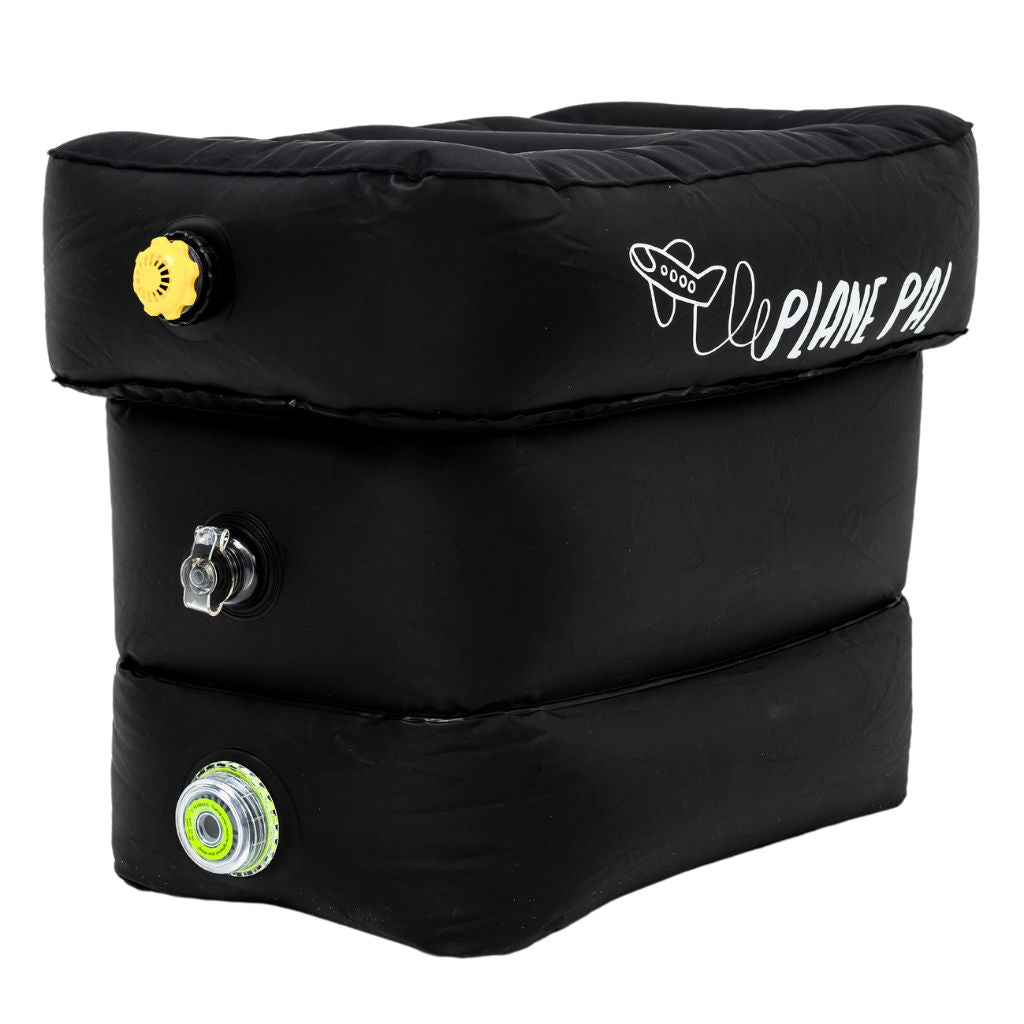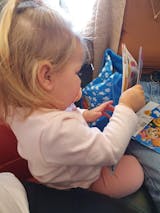Can Sensory Boards Help Children with Autism?
Autism affects around 700,00 children and adults in the UK with around one in every 100 people being on the autistic spectrum.
The autistic spectrum covers five major types of autism, including Asperger’s syndrome, Rett syndrome, Kanner’s syndrome, childhood disintegrative disorder, and pervasive developmental disorder. Each type of autism has its own unique characteristics and challenges, but understanding more about your child’s individual needs is key to helping them cope with their autism.
Children with autism often show signs of delayed development. It can seriously affect their development and this can lead to a number of problems. Autistic individuals might struggle to concentrate on tasks, interpret other people’s emotions, or socialise with others around them.
But that doesn’t mean that autistic children or adults can’t live happy and healthy lives! Thousands of people who are diagnosed with a form of autism lead incredible lives just like those who do not lie on the spectrum.
There are lots of recommended methods to managing autism, including dietary changes, exercise programs, and occupational therapy. During therapy sessions for children with autism, sensory boards are often used.
Sensory toys for children with autism have proven to be beneficial in boosting their development across all areas, including their physical, mental, emotional, and social health. In particular, sensory boards have gained attention in recent years and they are now found in many preschools and therapy centers across the country.
But what are sensory boards beneficial for autism? (insert link to blog 2) How does sensory play promote healthy development in toddlers and young children?
What is a Sensory Board?
A sensory board, sometimes called a busy board, is a hands-on activity or game that can be used by babies, toddlers, and young children to encourage explorative play. They contain a variety of components so that your child can explore all five of their senses through one object.
Why is Sensory Play So Important for Children?
During your child’s development, they learn a lot from the world around them. When they are exposed to new objects and environments, it helps to shape who they become.
By providing your child with sensory toys during their explorative playtime, you can promote healthy growth and development in every aspect of your child’s well-being.
Research shows that sensory play can enhance cognitive development and encourage rational thinking. It can help to create new neural pathways and strengthen the nerve connections in your child’s brain. This can lead to better cognition, improved learning, and enhanced memory.
Sensory toys can also support language development and social interaction. By playing with other children and sharing toys, your child can learn the importance of communication and participation in group playtime.
Sensory play is also a great way to encourage the development of gross motor skills and fine motor skills. As your child runs and jumps around during explorative play, they are activating their upper and lower body muscles and learning how to move properly.
Sensory boards have various parts that can be grabbed, pulled, and moved, which promotes the development of the smaller muscles in your child’s hands.
Another key factor that supports sensory play being a key part of your child’s development is the calming effects that it can have. When your child is throwing a tantrum, calming toys can provide a great distraction to relax them.
What Are the Benefits of Sensory Play for Children with Autism?
Sensory toys for kids (insert link to blog 1) are used in preschool lessons and occupational therapy sessions for children who are on the autistic spectrum or those with sensory processing disorders.
Sensory boards can tackle the common challenges that children with autism are faced with.
Many autistic children experience a delay in their cognitive development. Encouraging sensory play may help to accelerate their development and boost their thinking skills. In those with sensory processing disorders, using sensory boards can improve sensory processing abilities by activating all five of the senses at once.
Sensory toys for autism can also improve movement. Autistic children often struggle to exercise or move properly and this can lead to them remaining sedentary. By encouraging them to participate in explorative play using fidget toys (insert link to blog 3) or sensory boards, it can promote healthy physical development by enhancing the development of gross and fine motor skills.
If your child struggles to interact with others around them, sensory boards can promote social development. When they are playing in an environment that feels safe and secure, they are more likely to explore. As they are exposed to lots of new stimuli, they can grow in confidence until they are able to participate in group play.
How Much Sensory Play Should Children with Autism Get?
The amount of sensory play that your child needs will be unique to their needs and preferences. However, there are some general guidelines that you can follow if you’re unsure.
Research indicates that using sensory toys for autism in sessions lasting around one hour is optimal. Ideally, these one-hour sessions should take place two to three times a week to ensure your child gets lots of playtime to explore the world around them.
Don’t be discouraged if your child doesn’t seem to be very interested in their sensory boards at first. It might take a few weeks for them to feel comfortable enough exploring and trying new things, but this is normal and it’s nothing to be concerned about!
The important aspect of any type of sensory play for children with autism is comfortability. You want your child to feel as safe as possible in their environment so that they feel confident in exploring different objects.
Creating your own playroom or play area at home is a great way to ensure maximum comfort for your child. Set aside a small area to play with your sensory boards, fidget toys, and other calming toys so your little one can enjoy hours of explorative fun and games.
Make sure you get involved too! Stay with your child during their sensory play sessions and join in as they pick up different objects. Encourage them to touch different materials and press different buttons to stimulate their senses. Your presence will also help your child feel safe and comfortable!
How to Create Your Own Sensory Board
You can make your own sensory boards for your child by adding lots of tactile and visual objects to a flat board. The aim of adding these objects is to stimulate your child’s senses, including sight, smell, hearing, touch, and taste.
One of the best things about creating your own sensory board for your child is that you can fully customise it to your child’s individual needs. For example, if your child is intolerant to noise and they struggle to sleep because of it, you can include lots of auditory objects that offer soothing noises into the board to enhance their tolerance and improve their sleep.
Many parents struggle to know exactly what to include in their sensory boards. Here are some ideas!
- Sight – sensory light toys, LED bulbs, night lights, lots of different colors
- Smell – scented fabrics
- Hearing - rattles, bells, audio buttons, soothing music
- Touch - feathers, velcro, cotton, ribbon, string, faux fur, or bristles.
- Taste – chewing necklaces
For example, you can add a soft, fluffy material to one part of the board so your child can explore their sense of touch. You can add flashing LED lights to grab their attention and stimulate their eyesight. You can include a scented fabric to stimulate their olfactory system.
Try to include as many different bits and bobs as you can to keep your child engaged. Have fun with it!
Final Thoughts
Taking care of a child with autism can be challenging, but extremely rewarding. There are lots of great ways that you can support your child and manage their condition, and sensory toys are one of the best tools that you can use.
There’s no denying that sensory toys for autism provide lots of incredible benefits for toddlers and young children who might otherwise struggle in certain areas of their life.
Sensory boards promote physical, cognitive, emotional, and social development. They are one of the best ways to help your child develop each of their five senses all in one go, and they’re the perfect solution to developing your child’s motor skills and movement patterns.
Calming sensory toys encourage your child to be brave and play around with different objects while in a safe environment, and they provide a great distraction if your child is feeling upset or agitated.
If you’re looking for an amazing sensory board to keep your child occupied and encourage healthy growth and development, be sure to take a look at the sensory toys we have here at KeepEmQuiet! We have just released a brand-new exciting Sensory Fidget Kit that is perfect for every child as part of their sensory play.










Leave a comment